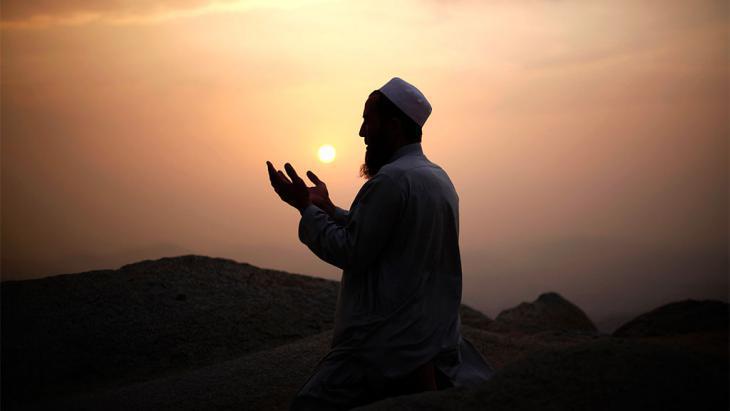
Islam and Democracy – Can Indian Muslims Pave a Way for Real “Islam” and thus Democracy
The Economist covered a special report on Islam and Democracy in its current edition. It is interesting to read the developments in the Islamic world and its analysis from the point of view of the western world.
As the Islam is scattered through various nation states, it becomes important geopolitically, but judging by the numbers, India is one of the most populous geographical places for the Muslims in the world. If trends continue, India will house the first largest concentration of Muslims in any country. Therefore, the understanding and study of Islam in India is important for not only India but also for the world.
Islam as we now know comes in many shades of green. Islam is not a uniform religion and there are many sects within the Islam. The rise of political Islam is different in different countries and hence understanding Islam in its geographical context is important to begin any discussion on Islam and Democracy.
However, looking at the trinity of the words like Islam, Muslim, and Salam, they have the same etymological root in Arabic s-l-m, which means peace. If Muslims go back to their original doctrine, the ultimate imperative for them will be to bring peace in the world.
History bears the witness to the fact that majority of the Muslims in India are converted Muslims that means the majority of them have not come from Mongolia or the Middle East. Though Indian subcontinent was invaded by the nomads from Mongolia like they did invade Europe, the majority of the Muslims were converted.
If we study the census in India, the majority of them were converted from the backward classes, over 80 percent of them. Like any other things in India, the Islam in India is also tainted with the “caste system”. The Indian Muslims are divided into a strong caste system. Like their Hindu counterparts, the upper castes among the Muslims have exploited the lower caste both in the Islam and so called Hinduism.
When the rhetoric of Pakistan began, Jinnah wanted to create a democratic state, but the elitists’ founders of the Pakistan, mostly educated in English, did not create a democratic Pakistan, but the writings on the walls at that time were clear: How Muslims will live side by side with the Hindus? If India had not partitioned, the Indian subcontinent would have housed over 500 million Muslims (roughly 200 million in Pakistan, 170 million in Bangladesh, 190 million in India). We can only imagine the shape of the political things in India if the Indian subcontinent would have remained undivided.
Facing the reality of the time, Indian Muslims live in the democratic state in which they have written to redress and address their issues through democratic institutions and democratic setup. However, the Muslims in India have remained a divided force and hence their political power is defrayed.
This is the reason why though Muslims are backward classes they have not been able to join ranks with the other backward classes to fight for their proportionate representation in the social, political, and economic spheres.
The Indian Islam stands at the crossroads between the east and the Middle Eastern Islamic world as Indian Islam was the melting pot of the many ideas and it is syncretic in its nature. The Muslims in India (and Pakistan) have grown up listening to the Sufi Kalams of the great saints like Bulleh Shah in Punjabi, along with their “Hindu” counterparts.
Kabir is as much dear to Hindus as he is dear to Muslims. With this openness at the heart of Indian Islam, if the strong social justice movement emerges within them which will work in the democratic setting and follow the institutions of democracy in India, it will pave a way for a possible hybrid of the democracy as a way of life to create peaceful and harmonious society.
But for those whose power is derived from the division among the Muslims, among the Hindus, among the Hindus and Muslims. Among the different castes in India, among men and women, it will be the greatest threat and challenge to power.
Only the homegrown grass-root movement starting with the strong sense of social justice among the Muslims has the power to show the Islamic world the possibility of compatibility of Islam and Democracy.
Author – Mangesh Dahiwale



@Dr. Berwa: Man you really have no about Pakistan. Please do not assume things about Pakistan, when you have never been to Pakistan. We Pakistani Muslims do not elect religious parties, like your people in India elect religious-fanatic parties like the BJP and Shiv Sena, or Yogis and the Pundits.
And it is spelt ‘Quaid’, not ‘Kaide’.
Democracy is an alien notion to South Asian culture except during Buddhist period.It does not have a religious roots. It will be quite a challenge to India to nurture it. Pakistan of course now has become a theocratic state, where since kai-de Azam Jinnah Founded Pakistan the notion of Democracy has been busted by Pakistani Army/Military.The Mullah and Maulvis have poo fulr sway over an ordinary Muslim like Hindu priest . So I believe that it will be a tough road to travel between the religionist and secularists.